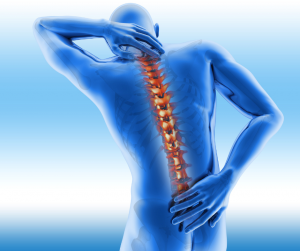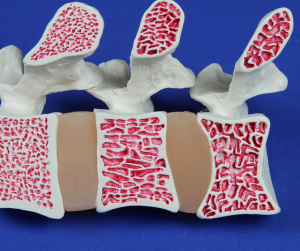What is Osteoporosis?
Osteoporosis is a condition where your bones become more fragile, so they can break more easily than the average adult. It is a silent condition because the first symptom is usually a broken bone, often after a relatively minor bump or fall. Osteopenia is the early stage of osteoporosis.
Osteoporosis is a condition where your bones become more fragile, so they can break more easily than the average adult. It is a silent condition because the first symptom is usually a broken bone, often after a relatively minor bump or fall. Osteopenia is the early stage of osteoporosis.

Who gets Osteoporosis?
Anyone can get osteoporosis. You are at higher risk if you are a woman, especially after the menopause. However, people with certain medical conditions, such as Crohns disease, athletes who overtrain, people with a history of eating disorders, or even those with a sedentary lifestyle are all at higher risk of developing osteoporosis.
How do I know if I have Osteoporosis?
In Ireland Osteoporosis is diagnosed by a DXA scan. This is a painless bone density scan of your spine and hips which gives results in T-Scores. These will tell your doctor if you have osteoporosis.

How can Physiotherapy help?
In conclusion staying active and exercising is great for your bone health. It helps strengthen your muscles and bones, leading to fewer broken bones.
Your physiotherapist will assess you to see what exercises are safe and most beneficial for you. They will give you an exercise program to strengthen you, improve your balance and posture, and reduce your risk of falling and breaking a bone. Your physiotherapist will also teach you how to progress your exercises without putting undue stress on your bones, and how to avoid movement that may be unsafe for you.
Remember
If you would like to speak to one of our chartered Physiotherapists call us on 021-4633455 or book an appointment now. We hope you enjoyed this blog from Louise O’Hare, Chartered Physiotherapist.
This blog is provided for information purposes only. The content is not intended to be a substitute for professional medical advice, diagnosis or treatment. Seek the advice of your doctor with any queries regarding a medical condition.
